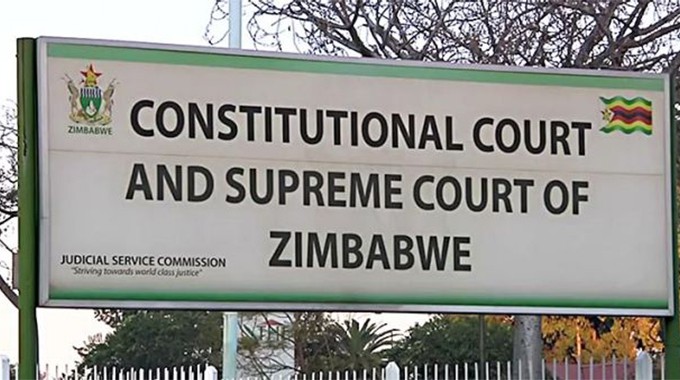Bulawayo based lawyer, Nqobani Sithole, has lodged an application with the Constitutional Court of Zimbabwe, challenging the passage of the Constitution of Zimbabwe Amendment (No.1) Bill H.B. 1A, 2017) in Parliament.
Sithole of Abammeli argues that parliament “failed to exercise its legislative authority” by reviving Bill on March 24, 2021, when the Constitutional Bill had lapsed at the end of the previous parliament.
Legal experts say the life of a bill is subject to the life of a parliament.
In the Zimbabwean context, parliament has a five-year term, which means a bill raised during the eighth parliament (2013 – 2018) is rendered dead when a new parliament is sworn in.
This current ninth parliament was opened on September 18, 2018.
The 2017 bill, renamed as the Constitutional Amendment Bill (Number 2) of 2019, sailed through both the National Assembly and Senate and now awaits Presidential assent.
In his application filed April 22, 2021, Sithole argues that by restoring the Constitution of Zimbabwe Amendment (No.1) Bill (H.B. 1A, 2017) to the Order Paper, parliament violated Section 147 of the Constitution of Zimbabwe.
Sithole cited Parliament, the Speaker of National Assembly Jacob Mudenda, president of the Senate Mabel Chinomona, Minister of Justice, Legal and Parliament Affairs Ziyambi Ziyambi and President Emmerson Mnangagwa as respondents.
The lawyer said the “motion to restore” the said bill to the “Order Paper on March 24, 2021, when the Constitutional Bill had lapsed on July 29, 2018, by operation of Section 147 of the Constitution of Zimbabwe is a violation of the law.
In terms of Section 117(1) of the Constitution, all respondents are vested with the legislative authority of Zimbabwe, which implies that the respondents are not expected to “violate any provision of the constitution.”
The same section places a duty on Parliament “to ensure the provisions of the constitution are upheld” and that any bill, which parties seek to be enacted is presented in and passed by the lower and upper houses without violating the constitution.
As such, Sithole argues parliament erred in its constitutional obligation under Section 131(2), as read with Section 117(1) of the constitution by reviving a bill which lapsed on July 29, 2018, that is the last parliament.
He further argues that on April 6, 2021, Parliament, through the senate, debated and passed the said bill when the same had lapsed on July 29 by operation of Section 147 of the constitution that is upon the dissolution of the eighth parliament.
Sithole is seeking a declaratory and consequential order in terms of Section 167(2)(d) of the constitution and seeks that the Constitutional Court declares the passing of Constitutional Amendment Bill (No. 2) of 2019 to be of no force and legal effect.
He contends that if parliament desired to steer through the said bill, “it should have commenced the process afresh in keeping with the procedures prescribed in Section 131 of the Constitution.”
In an interview with CITE, Sithole said the parliament had amended Zimbabwe’s constitution illegally and thus violated the constitution.
“This Bill was brought in parliament in 2017 which was then dissolved, so all bills that were not passed then must be restarted. When they sought to challenge the constitution, Zanu pf needed a two-thirds majority which they failed to get. So in the process of amending failed to get that, then the Constitutional Court said they must vote again but the ConCourt doesn’t have that power. It must only declare whether the process was done properly or not so everything is wrong about that bill,” he said.
The Bill seeks to remove a clause on running mates and retain the present system of the President appointing vice-presidents, extend the quota of extra women MPs by two more terms, add 10 more seats reserved for people aged 21 to 35 and extend the tenure of judges beyond 70 years of age.
Last year in December, Sithole also sued the Registrar-General over errors and misspellings of IsiNdebele words on the Zimbabwean passport.

